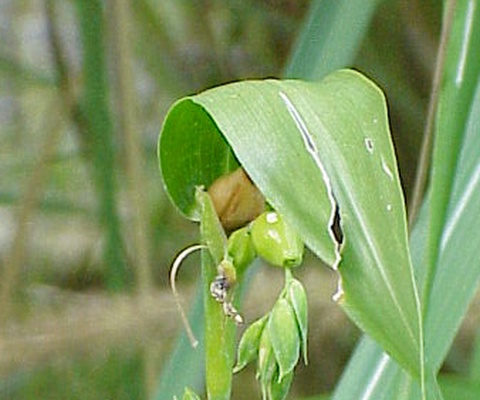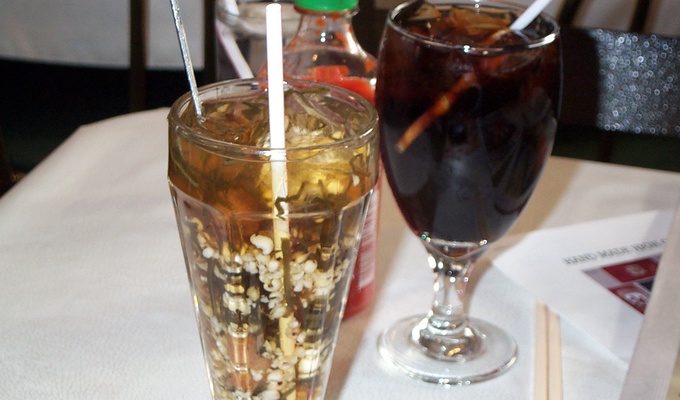Job's tears (Coix lacryma-jobi), also known as adlay or adlay millet, and also marketed as Chinese pearl barley, is a tall grain-bearing perennial tropical grass. It is not a true barley but is part of the millet family. It is cultivated in China, Myanmar, and Malaysia, where it is known as yìyǐ rén (薏苡仁).
Throughout East Asia, Job's tears are available in dried form and cooked as a grain. Job's tears grains are widely eaten as a cereal. The grains of Job's tear can be used the same way as rice. It can be eaten cooked or even raw, as it has a slightly sweet taste. Further, the grains can be used for the production of flour.
In Korean cuisine, a thick drink called yulmu cha (율무차, literally "Job's tears tea") is made from powdered Job's tears. A similar drink, called yi ren jiang (薏仁漿), also appears in Chinese cuisine, and is made by simmering whole polished Job's tears in water and sweetening the resulting thin, cloudy liquid with sugar. The grains are usually strained from the liquid but may also be consumed separately or together.
In Japan, the roasted kernels are brewed into hatomugi cha (ハトムギ茶), literally a "tea". This is drunk for medicinal value and not for enjoyment, as it does not suit the average consumer's taste, but a more palatable brew is obtained by roasting seeds that have been germinated, which reduces the distinctive strong odor.
In southern China, Job's tears are often used in tong sui (糖水) dessert soups, especially ching bo leung.
In Cambodia, where it is known as skuay (ស្គួយ), the seeds are not much used as a grain, but are used as part of herbal medicine and as an ingredient in desserts.

